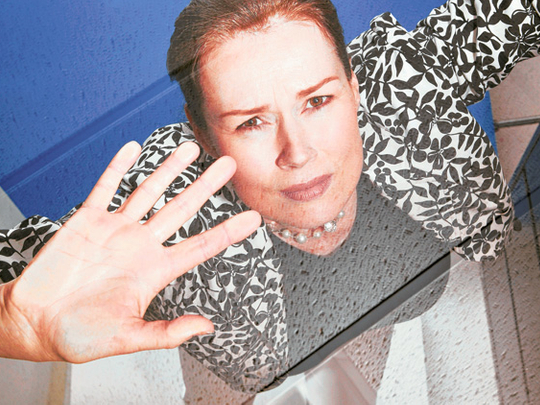
Women have made great strides over the years, but many still feel they're lagging behind their male peers in the workplace.
Equality in the office is still a long way off according to industry experts that examined gender roles in the workplace.
Dr Michael Burchell, Partner and Director of the Great Place to Work Institute, said "tacit or explicit gender discrimination" remains a major issue, so many women struggle to grow and contribute to their organisation, provide well for their families and develop their talents.
"Several major global studies reflect this ongoing concern," he said.
The trend is confirmed by a recent research by online recruitment agency Bayt.com showing that four in 10 women across the region feel they receive less pay than their male counterparts and have a slimmer chance of promotion, although they work as much, and even more than their male colleagues.
Unequal opportunities
Lama Ataya of Bayt.com said this inequality could stem from many factors, including outdated stereotypes and unequal education opportunities for men and women.
She said there are also companies that are "poorly equipped" or are unable to provide the benefits, training and career advancement opportunities that women feel are entitled to.
More than half (53 per cent) of the women surveyed said their working life would be extended if only employers offer them better salaries, training, special maternity and family allowances, among other gender-sensitive benefits.
"This is definitely an issue to be looked into in order to ensure even more equality between men and women professionals in the Middle East workplace and increase productivity, engagement and career longevity across the board," Ataya told Gulf News.
She, however, pointed out that many women in the region have been climbing the career ladder despite the perceived gender gap.
In Bayt.com's "Women in the Middle Eastern Workforce 2010" research, 76 per cent of the respondents indicated that there are women currently occupying senior ranks in companies.
"Women have proven to be indispensable and prolific contributors at a professional level across all sectors in the Middle East and have been vaulting up the ranks to acquire senior positions," Ataya said. There are several ways in which women can achieve fair treatment and improve their chances of success in their organisation:
Lama Ataya, Bayt.com's marketing and corporate communications director, advised that goals should be smart and set out according to a clear and dedicated timeline, and with clear interim and milestones.
"Women should aim as high as they want to and can but still be realistic about when and how they can achieve their goals, so they do not set themselves up for premature disappointments that reduce their morale," she said.
When pursuing their goals, women should remain persistent and optimistic, because success rarely happens overnight. Women should also learn to adjust their goals, if necessary, and have the "commitment, creativity and drive to reach the intended career mark with flying colours."
Perfect negotiation skills
Before taking on a job, Ataya said it is important to satisfactorily set the starting salary and other perks. But this is just the beginning.
"Throughout a working woman's professional life, she may need to renegotiate salary increases, opportunities for advancement and the provision of education and training opportunities as well as family allowances and perks," Ataya said.
Burchell also emphasized the need for women to learn how to negotiate their compensation. "Men are more likely to negotiate salary up front. Women should do so as well, and ask for what they need in terms of support."
Role models and mentors
Burchell said the best people to go to would be the more tenured women or those in more senior positions. "Take them out for tea and find out more about how they have been able to develop," he advised.
Ataya admitted that many women lack professional role models they can refer to, consult and compare notes with, so it is also important that they learn to be confident and assertive.
"We advise them to have every confidence that they can, to achieve the smart and well-studied goals they set out to achieve. [They should] be assertive and single-minded so they can inspire confidence and buy in from other professional stakeholders along the way."
Choose company wisely
Even before you accept a job offer, ensure that the organisation you're going to work for promotes women's rights. "Ask a series of questions during your interview to understand how supportive the company culture is for women," Burchell said.
Best practices of firms that promote workplace equality
According to the Great Place to Work Institute, here are some of the best practices of companies that strive to promote equality:
1. Implement salary benchmarking studies on a regular basis
2. Companies make no distinction between men or women, or family providers versus single people in their compensation protocol
3. Best companies tend to communicate and make transparent their pay philosophy and how pay is determined
4. Create an HR audit process that examines differences in pay and promotion opportunities across different groups to ensure there is no discrimination
5. Institute a formal grievance procedure that employees can make use of if they have questions or concerns about how they were treated.
6. Supportive processes for women including women's affiliate groups, education for women on career development, strong anti-harassment or anti-discrimination policies, and women-friendly or family-friendly people practices such as maternity/paternity leave, child/elder care, job sharing, time away, and flex-hours policies.







